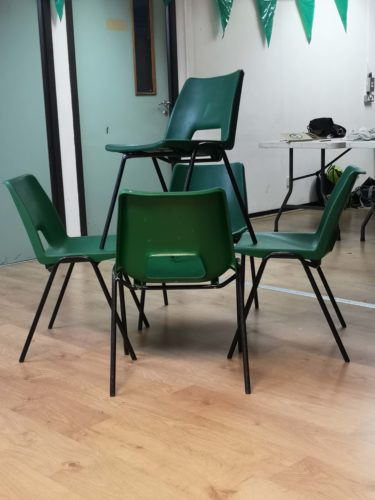This week, a powerful stimulus for discussing power. It’s taken from Augusto Boal’s “Games for Actors and Non-Actors”, one of the best books ever written for doing thoughtful work with groups.
Warm-up: This is Not a Spoon
This is an excellent activity to get people thinking about what an object can represent, ready for the main stimulus.
Pass a spoon around the circle, saying first of all that for example, “This is not a spoon. It’s a tennis racquet,” and demonstrating. The next person says (and demonstrates), “This is not a tennis racquet. It’s a…” and so it carries on. Quickly get several spoons circulating so that nobody is under pressure to come up with an idea in front of the whole circle.
Stimulus: The Game of Power
Place five chairs in a space (the circle or area at front of class). Invite participants to come up and arrange the chairs so that one of them is the most powerful. They don’t say which chair they think is the most powerful. Ask the other participants to say which chair they think is the most powerful, and to explain what the scene represents to them.
Some of the interpretations might be general – “That one is in charge and the others have to do what they say,” but perhaps more helpful are specific scenarios, “That one is a guard in a tower and he’s looking down on the prisoners.”
When does one become more powerful than many?
Does/should/will power always get concentrated in the hands of a few?
If power is shared, is it less powerful or more?
